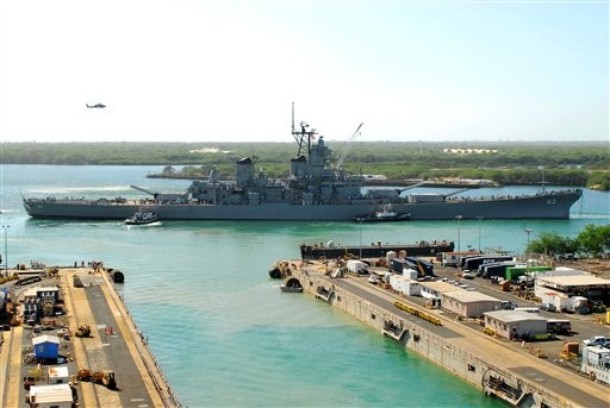Why Russia and China won't help U.S. with Iran

Writing in the New Republic, Matthew Kroenig offers one of the sharper takes I've read on the strategic implications of an Iranian bomb and why those implications mitigate against Chinese and Russian cooperation with the U.S.:
The United Statesâ?? global power-projection capability provides Washington with a significant strategic advantage: It can protect, or threaten, Iran and any other country on the planet. An Iranian nuclear weapon, however, would greatly reduce the latitude of its armed forces in the Middle East. If the United States planned a military operation in the region, for example, and a nuclear-armed Iran objected that the operation threatened its vital interests, any U.S. president would be forced to rethink his decision....Some analysts argue that we shouldnâ??t worry about proliferation in Iran because nuclear deterrence will work, much like it worked during the Cold War. But from Washingtonâ??s point of view, this is precisely the problem; it is more often than not the United States that will be deterred. Although Washington might not have immediate plans to use force in the Middle East, it would like to keep the option open.
This is, in a nutshell, the threat from Iran. Few people seriously believe Iran is going to use a nuclear weapon, but it is very reasonable to think that the strategic fallout from an Iranian bomb would be less American freedom of action in the Middle East. But is that conventional wisdom correct? Consider Pakistan. They have nuclear weapons and we nonetheless threatened them after 9/11 and invaded a neighboring country to depose a government Pakistan was allied with. Russia and China have nuclear weapons, but that has not stopped the U.S. from moving into Central Asia.
A nuclear weapon is certainly invaluable for saving your own skin (see North Korea), but it's not worth much to other countries unless you're willing to explicitly extend them the benefits of your nuclear deterrent, like the U.S. has done with some of its allies. Looking at the Middle East, there aren't too many likely recipients for an Iranian nuclear umbrella (and developing the capabilities to credibly offer one is extremely expensive). So about the best a nuclear bomb would do for Iran is prevent U.S. military action directly against them. (And consider too that the first Gulf War against Iraq saw the U.S. attack a country with WMD.)
In other words, it's likely that the U.S. would still be able to project power in the Middle East with an Iranian bomb. In fact, a nuclear Iran would almost certainly see a sharp increase in American power in the region (as we have already seen) as the U.S. moves to contain Iran.
But this just underscores the difficulty in enticing China and Russia to help: we can't tell them that a nuclear Iran is a threat to them, because it isn't. We can't say that a nuclear Iran would prevent their freedom of movement in the Middle East, because that's not something we want either. We can't tell them a nuclear Iran increases the prospect for regional instability, because from Russia's perspective, anything that puts pressure on oil prices is a good thing. We can't threaten military force because from Russia and China's perspective, the more we're bogged down policing the Mideast, the less we're paying attention to them.











